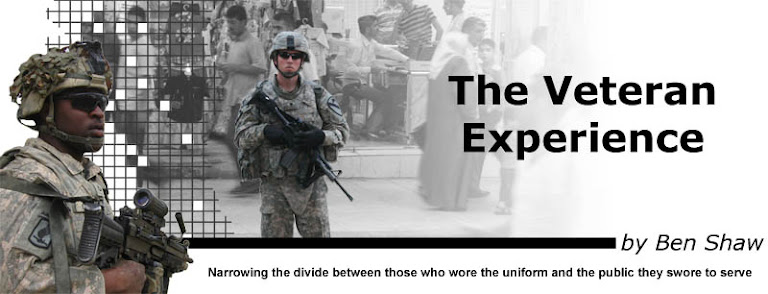*Reprinted with permission from the Fluvanna Review.
*Retold with permission
Last tour out here, they put me on suicide watch, even though given no indication of wishing to hurt myself. The command would probably argue that they’d rather be safe than sorry, which is legitimate, but the way they went about it wasn’t appropriate. They were acting off too many assumptions.
When I enlisted in the Army, I took advantage of the “Battle Buddy” program, which guarantees that you and a friend who enlists with you will train through boot camp together, and remain together in the same unit for a certain length of time. I’d joined with a friend I’d known for a good three years prior to enlisting, and we remained in the same unit well into my first deployment into Iraq. In fact, we were on the same patrol when things went horribly wrong.
Just like most every other US base in Iraq, whenever we took incoming rocket or mortar fire, a point of origin would be quickly calculated, and a unit would be sent out to investigate that coordinate – maybe they’d even find the perpetrators. Either way, it was the standard operating procedure: take incoming, go out and investigate. We’d done it at least fifty times before.
As we got ready to roll out, I remember our platoon sergeant telling us that instead of varying our route and reducing our “predictability,” we would drive straight out to the site, check it out, and drive straight back. He told us he wanted to be back in time for chow. We shouldn’t have made that compromise in tactics, but it wasn’t our call.
I have long questioned if what happened would have been avoided had we been smarter about our route planning. I have also struggled with the temptation of blaming my platoon sergeant for something that may or may not have been his fault. In this case, the enemy knew our standard operating procedure through and through. They weren’t around when we arrived at the point of origin of the incoming fire, but IEDs were, which detonated, killing two Soldiers. One of them was my battle buddy. I was actually the one that loaded him into the bodybag.
The unit leadership had known that the two of us were close, so they watched me intently over the next two days. Yet what I knew to be grief (relative isolation, lack of interest in talking to people, and restlessness), they presumed to be potentially suicidal behavior. Based off of what they saw, they made their judgment call. Not only was I going to be considered a combat stress case, but I was also going to be placed on suicide watch.
The command took away my rifle, lest I do myself harm to myself or others with it, placed me under 24 hour watch, insisted I wear a reflective safety vest, and attend daily combat stress classes. Needless to say, it was humiliating. I didn’t want to kill myself at all; I was grieving over the loss of a close friend.
Whenever I went to the chow hall, without my rifle but with my suicide watch vest, I was followed by Soldiers who watched me intently. Naturally, dressed as I was and unarmed, everybody else watched me too. Everybody that saw me labeled me a head case. In the combat stress classes, we all sat around while the facilitator soothingly invited us to talk about what we were feeling. I had little to say, obviously.
I understand the command’s concern, since suicide is a problem out here, but I think they overreacted in my case. I think it would be MORE concerning if I showed no emotion at all when my friend was killed. Grief is a natural and appropriate response to devastating loss. Aside from the personal humiliation, my biggest objection was the fact that what they did caused a loss of confidence with the rest of my peers. They assumed, based upon the command’s response, that I was unstable. I was monitored for two months, and it took a few weeks before my fellow Soldiers treated me as an equal again.
The Army has since changed their policies on how they respond in these situations, which is encouraging. For starters, rather than taking your weapon away from you, they simply take the bolt out. You may still be suspect, but at least your peers aren’t as aware that you’re being monitored. The Army is also working hard to improve their combat stress courses. In fact, the chaplain recently conducted an all-hands series of courses about suicide awareness and prevention. They’re making changes, but they still have some distance to go. I’m thankful they’re at least trying. In my case, though, I’m fairly convinced that the command made the situation worse. I wasn’t dangerous to myself or others; I just wanted my friend back. That, however, nobody could provide.
Copyright © 2009, Fluvanna Reveiw, All Rights Reserved

No comments:
Post a Comment